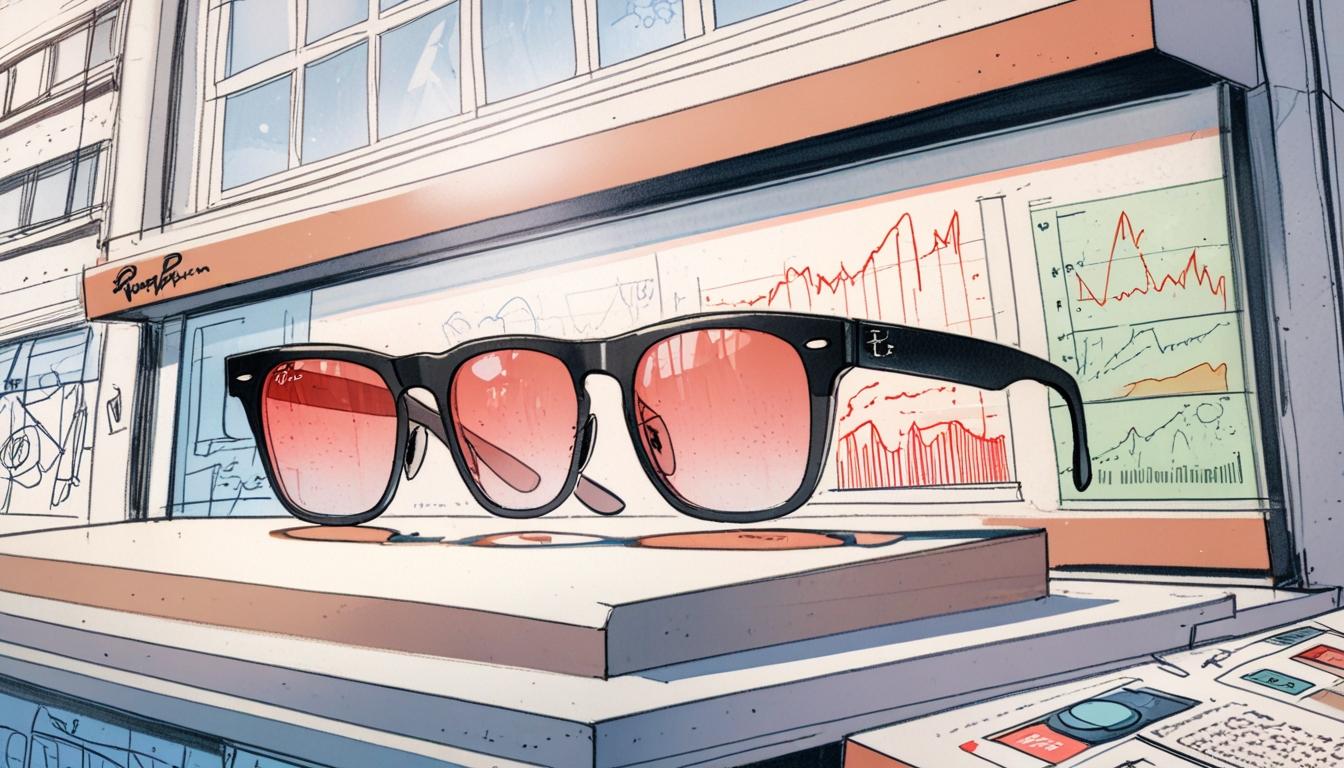The owner of Ray-Ban, Luxottica Group, has recently issued a cautionary outlook for 2025 following a downturn in UK sales and profits for the previous year. The company reported a turnover of £165.8 million for 2024, a slight decline from £168.1 million in 2023. Additionally, pre-tax profits fell from £7.4 million to £6.7 million. This decrease has been attributed to rising costs of goods and services combined with a notable increase in employer National Insurance contributions, set to rise to 15% from April 2025. These factors are expected to negatively impact both gross and operating profits.
Luxottica’s UK division noted the persistent inflationary pressures on labour costs, exacerbated by a combination of long-term sickness and post-Brexit workforce shortages. The board described the recent summer as particularly cool—the most significant drop in temperatures since 2015—which subsequently contributed to a drop in customer foot traffic. These elements have collectively strained sales performance in a crucial market.
Despite these challenges, the company asserts it maintains profitability and anticipates a recovery driven by strategic investments. In a recent board statement, Luxottica expressed optimism for an eventual improvement in performance, suggesting that the investments in place may offset some of the cost pressures they currently face. They noted: “Despite these headwinds, we continue to experience strong cost control measures.”
The broader Luxottica Group, founded in 1961 by Leonardo Del Vecchio and headquartered in Italy, encompasses several well-known brands including Sunglasses Hut, Persol, and Oakley. The group has reported robust growth outside of the UK, with its parent company, EssilorLuxottica, achieving revenues of €26.5 billion in 2024—up 6% year-on-year. This growth has been largely attributed to the success of Ray-Ban Meta smartglasses, which have sold over 2 million units since their launch, and the introduction of new products like Nuance Audio glasses.
Notably, EssilorLuxottica not only reaffirmed its operational targets but also reported strong growth with an 8.5% revenue increase in the fourth quarter alone. The success across various markets, particularly in North America and Europe, highlights the potential resilience of the group despite the challenges faced in the UK. Analysts point to the company’s strategic pricing and efficiency improvements as key drivers for their ability to navigate inflationary pressures without sacrificing profitability.
Looking ahead, while UK operations remain under strain, Luxottica's strong performance in international markets and its successful product launches suggest a more promising future. The company’s proactive approach to managing costs and investing in innovation could be crucial as it aims to weather ongoing economic turbulence. However, as geopolitical uncertainties persist, particularly affecting global supply chains, sustaining this growth trajectory will require continued vigilance and strategic agility.
The situation in the UK serves as a reminder of the complex landscape businesses must navigate in fluctuating economic climates, where local conditions can significantly impact global operations.
Reference Map
- First paragraph: 1, 2
- Second paragraph: 1, 2
- Third paragraph: 1, 2
- Fourth paragraph: 1, 3, 4
- Fifth paragraph: 3, 4, 5
- Sixth paragraph: 6, 5
- Seventh paragraph: 4, 6
Source: Noah Wire Services
